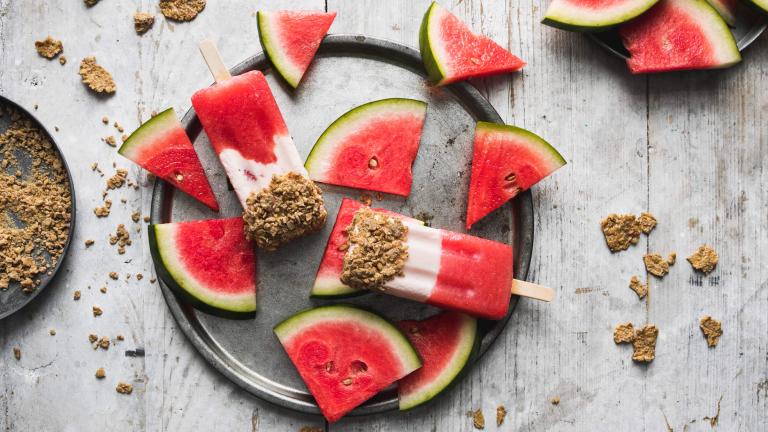

The Ultimate Showdown: L-Citrulline vs Watermelon - Which is Better for Boosting Performance?
Table of Contents
Are you looking to take your athletic performance to the next level? Look no further, because we're about to dive into the ultimate showdown: L-Citrulline vs Watermelon. Both of these powerhouses are known for their performance-enhancing properties, but which one reigns supreme?
In this article, we'll explore the benefits of L-Citrulline and watermelon, and compare their effectiveness in boosting performance. L-Citrulline, a naturally occurring amino acid, has gained popularity in recent years for its ability to increase nitric oxide production, leading to improved blood flow and enhanced endurance.
On the other hand, watermelon, a delicious and hydrating fruit, contains a high concentration of L-Citrulline, making it a promising alternative. Join us as we delve into the science behind these two contenders, uncovering the truth about which is truly the champion when it comes to optimizing athletic performance.
Get ready to be informed and make the best choice for your fitness journey!
What is L-Citrulline and how does it work?
L-Citrulline is an amino acid that is naturally produced in the body. It plays a crucial role in the urea cycle, which helps to remove ammonia, a toxic byproduct of protein metabolism, from the body. L-Citrulline is also converted into another amino acid called L-arginine, which is a precursor to nitric oxide. Nitric oxide is a molecule that helps to relax and widen blood vessels, improving blood flow and oxygen delivery to the muscles.
Research has shown that supplementing with L-Citrulline can increase plasma L-arginine levels more effectively than supplementing directly with L-arginine. This is because L-Citrulline is converted to L-arginine in the kidneys, bypassing the liver and preventing degradation. By increasing L-arginine levels, L-Citrulline promotes the production of nitric oxide, leading to enhanced blood flow, reduced fatigue, and improved exercise performance.
In addition to its role in enhancing nitric oxide production, L-Citrulline also plays a part in reducing muscle soreness and promoting recovery. Studies have shown that L-Citrulline supplementation can help to decrease muscle soreness after exercise, allowing athletes to train harder and recover faster. These benefits make L-Citrulline a popular choice among athletes and fitness enthusiasts looking to optimize their performance.
The benefits of L-Citrulline for performance enhancement
L-citrulline is a non-essential amino acid that is converted to L-arginine in the body. L-arginine is then used to produce nitric oxide (NO), which is a gas that has many beneficial effects on the body, including:
- Vasodilation, which is the widening of blood vessels
- Increased blood flow
- Improved oxygen delivery to muscles
- Reduced muscle fatigue
- Increased muscle growth
As a result of these effects, L-citrulline supplementation has been shown to improve exercise performance in a number of different studies. For example, one study found that L-citrulline supplementation improved cycling time trial performance by 1.5% in trained men. Another study found that L-citrulline supplementation increased the number of repetitions that participants could perform on a bench press exercise.
In addition to improving exercise performance, L-citrulline supplementation has also been shown to have other benefits, such as:
- Reduced blood pressure
- Improved kidney function
- Reduced inflammation
The recommended dosage of L-citrulline for performance enhancement is 2-6 grams per day. It is best to split this dose into two or three smaller doses throughout the day. L-citrulline can be taken on its own or in combination with other supplements, such as L-arginine or creatine.
Overall, L-citrulline is a safe and effective supplement that can improve exercise performance and overall health. However, it is important to note that more research is needed to fully understand the long-term effects of L-citrulline supplementation.
Here are some of the specific benefits of L-citrulline for performance enhancement:
- Increased blood flow: L-citrulline supplementation can increase blood flow to the muscles, which can help to improve performance during endurance exercise. This is because increased blood flow delivers more oxygen and nutrients to the muscles, which allows them to work harder for longer.
- Reduced muscle fatigue: L-citrulline supplementation can also help to reduce muscle fatigue during exercise. This is because NO helps to improve the removal of waste products from the muscles, which can help to prevent fatigue.
- Improved muscle growth: L-citrulline supplementation has also been shown to improve muscle growth. This is because NO helps to increase protein synthesis, which is the process by which the body builds new muscle tissue.
If you are considering taking L-citrulline for performance enhancement, it is important to talk to your doctor first. They can help you to determine if L-citrulline is right for you and can help you to find the right dosage.

The nutritional profile of watermelon
Before we dive into the benefits of watermelon for performance enhancement, let's take a closer look at its nutritional profile. Watermelon is a refreshing fruit that is not only delicious but also packed with essential nutrients.
Watermelon is primarily composed of water, making it an excellent choice for hydration. Staying hydrated is essential for optimal athletic performance as it helps regulate body temperature, maintain electrolyte balance, and prevent muscle cramps. In addition to its high water content, watermelon is also a good source of vitamins A and C, which are important for immune function and collagen synthesis.
Furthermore, watermelon contains several beneficial compounds, including antioxidants and phytonutrients. These compounds have been linked to various health benefits, such as reducing inflammation, protecting against oxidative stress, and promoting cardiovascular health. One of the key compounds found in watermelon is L-Citrulline, which we'll explore further in the next section.
Overall, watermelon is a nutritious fruit that provides hydration, vitamins, antioxidants, and other health-promoting compounds. Its unique composition makes it a promising choice for athletes and individuals looking to optimize their performance.
Watermelon as a natural source of L-Citrulline
As mentioned earlier, watermelon contains a high concentration of L-Citrulline, making it a natural source of this performance-enhancing compound. The L-Citrulline content in watermelon varies depending on the variety and ripeness of the fruit, but it is generally higher in the flesh near the rind.
Consuming watermelon can provide a significant amount of L-Citrulline, which can be beneficial for athletes. The natural form of L-Citrulline found in watermelon is easily absorbed by the body and can contribute to the production of nitric oxide, just like L-Citrulline supplements.
It's worth noting that while watermelon is a good source of L-Citrulline, the concentration might not be as high as what can be obtained from L-Citrulline supplements. This is because L-Citrulline supplements are specifically formulated to deliver higher doses of the compound. However, for individuals who prefer a natural and whole-food approach, watermelon can still provide a significant amount of L-Citrulline to support performance enhancement.
Incorporating watermelon into your diet can be a convenient and delicious way to increase your L-Citrulline intake. Whether enjoyed on its own, added to smoothies, or incorporated into salads, watermelon offers a refreshing and nutritious option for athletes and fitness enthusiasts.
L-Citrulline vs Watermelon: a comparison of effectiveness
L-citrulline and watermelon are both natural sources of the amino acid citrulline. Citrulline is converted to arginine in the body, which is then used to produce nitric oxide. Nitric oxide is a molecule that helps to relax blood vessels, which can improve blood flow and circulation.
There is some evidence that both L-citrulline and watermelon can be effective in improving vascular function and exercise performance. However, the research on watermelon is limited, and more studies are needed to confirm its effectiveness.
One study found that 6 grams of L-citrulline taken before exercise improved exercise performance in people with mild hypertension. Another study found that watermelon juice, which contains about 1 gram of L-citrulline per cup, improved vascular function in people with prehypertension.
In general, L-citrulline is more concentrated than watermelon, so you would need to eat more watermelon to get the same amount of citrulline. However, watermelon is a natural food, so it may be a better option for people who are looking for a food-based source of citrulline.
Here is a table comparing the effectiveness of L-citrulline and watermelon:
|
Factor |
L-citrulline |
Watermelon |
|
Concentration |
More concentrated |
Less concentrated |
|
Dosage |
6 grams |
1 gram |
|
Effectiveness |
Evidence of effectiveness |
Limited evidence of effectiveness |
|
Food source |
No |
Yes |
Overall, both L-citrulline and watermelon have the potential to improve vascular function and exercise performance. However, more research is needed to confirm the effectiveness of watermelon. If you are looking for a natural way to improve your vascular health, watermelon may be a good option. However, if you are looking for a more concentrated source of citrulline, L-citrulline may be a better choice.
Conclusion: The verdict on L-Citrulline vs Watermelon
There is no clear consensus on which is better, L-citrulline or watermelon. Some studies have shown that L-citrulline is more effective at improving vascular function and exercise performance. However, other studies have shown that watermelon is just as effective.
Ultimately, the best way to get your citrulline is the way that you enjoy the most. If you like the taste of watermelon, then eating it is a great option. If you prefer to take a supplement, then L-citrulline is a good choice.

















